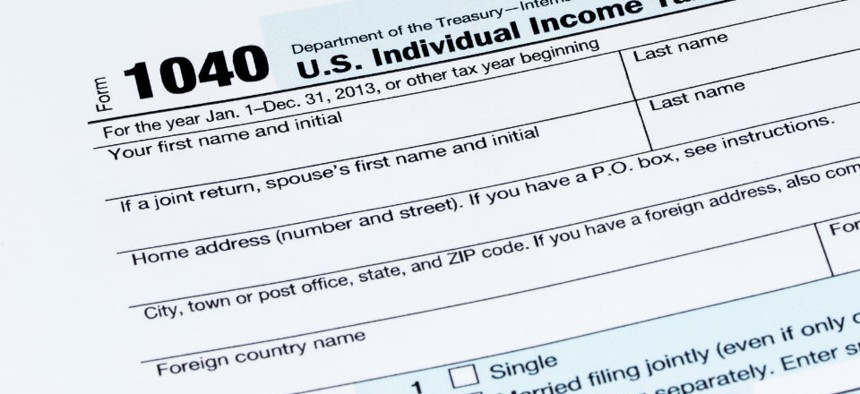
Eastside Cindy / Shutterstock.com
Treasury Watchdog Asserts Authority Over FOIA’d Tax Documents
Conservative legal group claims White House reviewed confidential returns.
The inspector general handling the targeting controversy at the Internal Revenue Service is resisting demands by a conservative legal group that it release documents the group believes show that White House employees violated privacy laws by reviewing confidential tax documents.
The dispute—the latest twist in the 18-month-old investigation of IRS mishandling of nonprofits’ applications for tax-exempt status—moved from mainly right-wing media outlets to the White House press room on Tuesday.
Back in September, the legal group Cause of Action won a ruling in District Court for the District of Columbia that the Treasury Inspector General for Tax Administration had not justified a claim to a waiver of FOIA disclosure requirements, and hence might have to turn over 2,043 pages of documents pertaining to its probe of the IRS Exempt Organization’s division.
“The court has ruled that the federal government cannot hide behind confidentiality laws to prevent Americans from knowing if our president has gained unauthorized access to their tax information,” said Cause of Action Executive Director Dan Epstein, at the time. “This is a decisive win for all Americans and for government transparency and accountability. The public already knows the president uses FOIA to shield his targeting of the press and this ruling prevents the president from using FOIA to shield his targeting of taxpayers."
But in a Dec. 1 letter, TIGTA attorney Gregory Miller told Cause of Action that while TIGTA had confirmed existence of the 2,043 pages as responsive to the FOIA request, it is withholding the documents under a FOIA subsection “in conjunction with” Section 6103 of the Internal Revenue Code, which protects taxpayer privacy. The letter promised a decision on an additional 466 pages of relevant documents by Dec. 15,” but it also said, “All of the 2,043 pages of documents we have determined to be responsive were collected by the Secretary of the Treasury with respect to the determination of possible liability under Title 26 of the United States Code,” noting that Justice Department lawyers are on the case.
On Tuesday, Fox News correspondent Doug McKelway brought up the Cause of Action FOIA and asked spokesman Josh Earnest whether the White House had received confidential taxpayer information.
Earnest said he was not familiar with the case, “and that's not surprising to me. There obviously is some distance between the White House and the IRS because it's an independent organization that's responsible for collecting taxes, and it conducts that business outside the realm of any sort of political interference. And those are rules that we've adhered to pretty closely. You're also citing a letter that was written by TIGTA, which is the inspector general, who also is somebody who acts independent of the administration.” He referred inquiries to TIGTA, while adding, “I can tell you as a rule that the Obama administration has been very rigorous in following all of the rules and regulations that govern proper communication between Treasury officials and White House officials and the Internal Revenue Service.”
A TIGTA spokesman told Government Executive that TIGTA, “as the custodian of any potentially responsive documents requested under FOIA, is responsible for making any determinations regarding their release as a delegate of the Secretary of the Treasury.”
A Treasury spokesman declined to comment and referred queries to TIGTA.
Asked to elaborate on TIGTA’s role and what might be in the documents, Cause of Action spokeswoman Mary Beth Hutchins cited IRS internal emails released to Rep. Darrell Issa, R-Calif., chairman of the House Oversight and Government Reform Committee. She said they demonstrate that Jeanne Lambrew, deputy director of the former White House Office of Health Reform, was shown unauthorized taxpayer personal information. She said presidents are permitted access to protected taxpayer documents only under certain procedures, which the record shows were never invoked, she said. Cause of Action is challenging TIGTA’s interpretation of its statutory authority.
Paul Streckfus, an attorney who publishes a newsletter on Exempt Organizations, found the TIGTA attorney’s letter “troubling” in that the protected information ended up with the Treasury secretary and then the Executive Office of the President. “These aren’t allegations by hot-under-the-collar Tea Partiers but admissions by TIGTA,” he said. This “cries out for an explanation.”
(Image via Eastside Cindy / Shutterstock.com)







